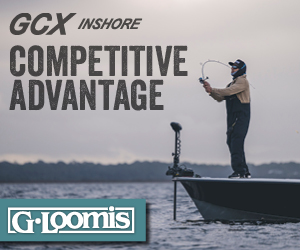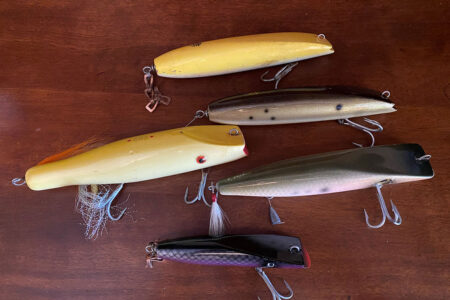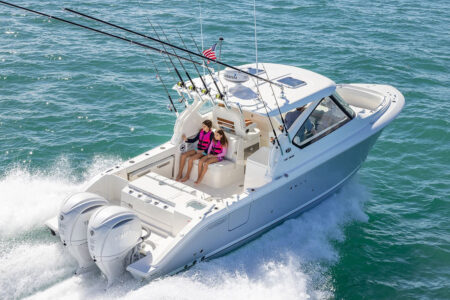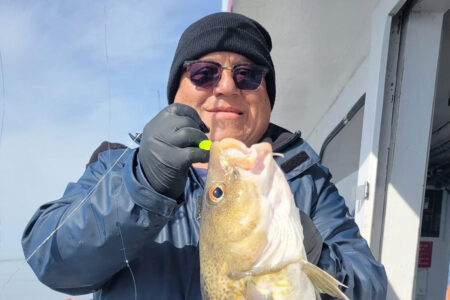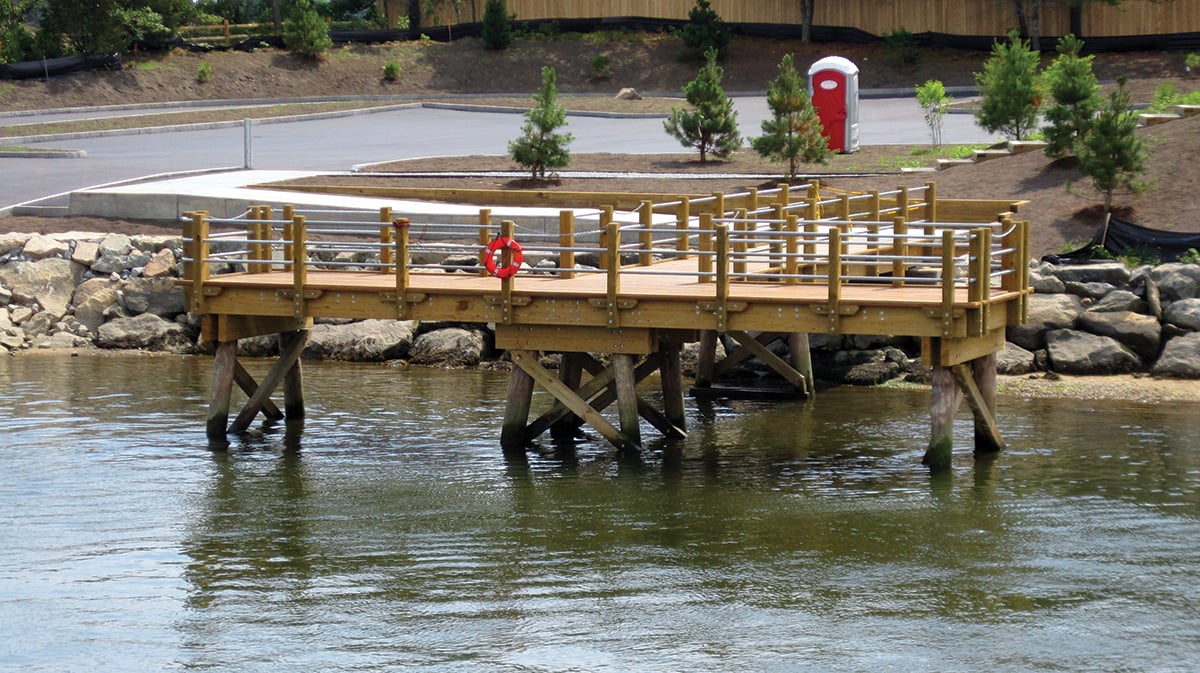
Photos by Jack Sheppard, MA Office of Fishing and Boating Access
As a former appointed member of the Massachusetts Marine Recreational Fisheries Development Panel, which is responsible for overseeing the state’s saltwater recreational fishing licensing program, I was often asked why a license is needed. Many anglers are unaware of how the states use the money collected for saltwater recreational fishing permits. Some anglers with whom I spoke were actually angry that they needed to purchase a saltwater fishing license, complaining that the ocean should be free to everyone. Others expressed concerns that the money would be put into general revenue and used to fund non-fishing programs.
Unfortunately, the states have not done as good a job as they could to publicize what is being done with the money. For this reason, many anglers do not realize that these funds provide increased public access, especially for shore anglers, as well as help to fund many other important projects for saltwater anglers. They are probably unaware that by law all revenue raised through the states’ saltwater licensing programs must be used for the sole purpose of supporting saltwater recreational fishing. The states are required to report all revenue expenses to the United States Fish and Wildlife Service on a yearly basis.
The Move Toward Saltwater Licensing
Saltwater fishing is one of the biggest recreational activities in the New England coastal states, so for years, state governments proposed saltwater licensing as a means to raise additional funds. Then in 2010, a mandate of the reauthorization of the federal Magnuson-Stevens Act was put into place requiring states that didn’t have a state saltwater license/permit program to either implement one or would force anglers engaged in saltwater fishing within their state to enroll in the National Saltwater Angler Registry Program. There was some real teeth in this law because states that failed to comply would not have access to sport fishing funds collected by the federal government from the sale and importation of fishing equipment. Historically, a large portion of these funds had been returned to the state in the form of grants, which provided substantial support for marine fisheries programs.
The purpose of the law was more than about raising additional funds for programs and activities to benefit marine recreational fishing. Its real objective was to create more accurate ways of collecting and reporting recreational fishing data. For a long time, both state and federal agencies had access to lots of data on commercial fishing, but there was a scarcity of reliable data about recreational fishing and its economic impact.
The National Registry Program exempts anglers who possessed a state-issued license from registering. It is important to note that the appropriate federal permits are still required for those anglers fishing for tuna, sharks, and billfish in federal waters. As an additional incentive for state licensing, the federal government would not only allow the states to keep all money generated through licensing but also would provide supplemental funding to participating states. It made sense for the New England states to implement their own permitting programs.
Unlike many other states, anglers fishing on head boats and charter boats in the New England coastal states are exempt from having to buy individual licenses. An additional benefit is that CT, MA, and RI all offer reciprocity to each other, which means that residents in each of these states can fish in any of the other three states’ waters with their own state license. CT and RI include NY and ME anglers to their list of reciprocity. MA also allows anglers holding a valid NH license to fish its waters. NH has reciprocity only with MA and ME.
How Is It Working?
Last year, CT, RI and MA all saw an increase in number of saltwater permits/licenses and increases in gross revenues from the previous year. It is important to note that the states also saw an increase in federal aid through U.S. Fish and Wildlife Service Sport Fish Restoration Program and NOAA Marine Fisheries appropriations.
Like many coastal states, shore access in New England has been increasingly threatened by land development along their coasts. To guarantee that the public has access to shore-based fishing opportunities, CT, RI, and MA have allocated much of their licensing revenues to provide increased shore access for recreational angling. By law, Marine Fisheries in Massachusetts is required to allocate at least 1/3 of the money collected for improving public access. Although RI and CT do not have the same mandate, they continue to appropriate much of their funds for public access.
In MA, license money along with additional financial support from the Massachusetts Office of Fishing and Boating Access and from aid secured through the Sport Fish Restoration Funds have funded several fishing piers and shore access sites for recreational fishermen. This past November, Governor Baker approved a supplemental budget package, which included the release of the funding for a state-of-the-art fishing pier on Deer Island. According to Patrick Paquette, Chair of the Massachusetts Marine Recreational Fisheries Development Panel, “When completed the Deer Island pier will be the largest fishing pier accessible by public transportation in the nation. It will be 100% funded by license fees and is the largest recreational project funded with permit money in any New England state.”
RI also has spent much of its licensing revenue to enhance public access. This year, licensing funds in Rhode Island were used to construct the Rocky Point State Park fishing pier. Last year, funds were used to build the Goddard Park boat ramp, and the previous year, a new boat ramp was constructed in Galilee. Funds are also allocated to maintain existing ramps and public fishing areas.
Connecticut uses license revenue to supplement general state funds and federal Sportfish Restoration assistance to improve public access for recreational anglers. Over the past few years, over 2 million dollars has been allocated for maintenance and upgrades of aging boat ramps and other fishing sites in the state. Connecticut also has allocated funds to establish and manage Enhanced Shore Fishing Access Sites across the state. This unique program provides over 40 shore-based fishing locations exclusively for shore anglers. In Shore Fishing Access Sites, anglers also have smaller size limits for fluke and scup.
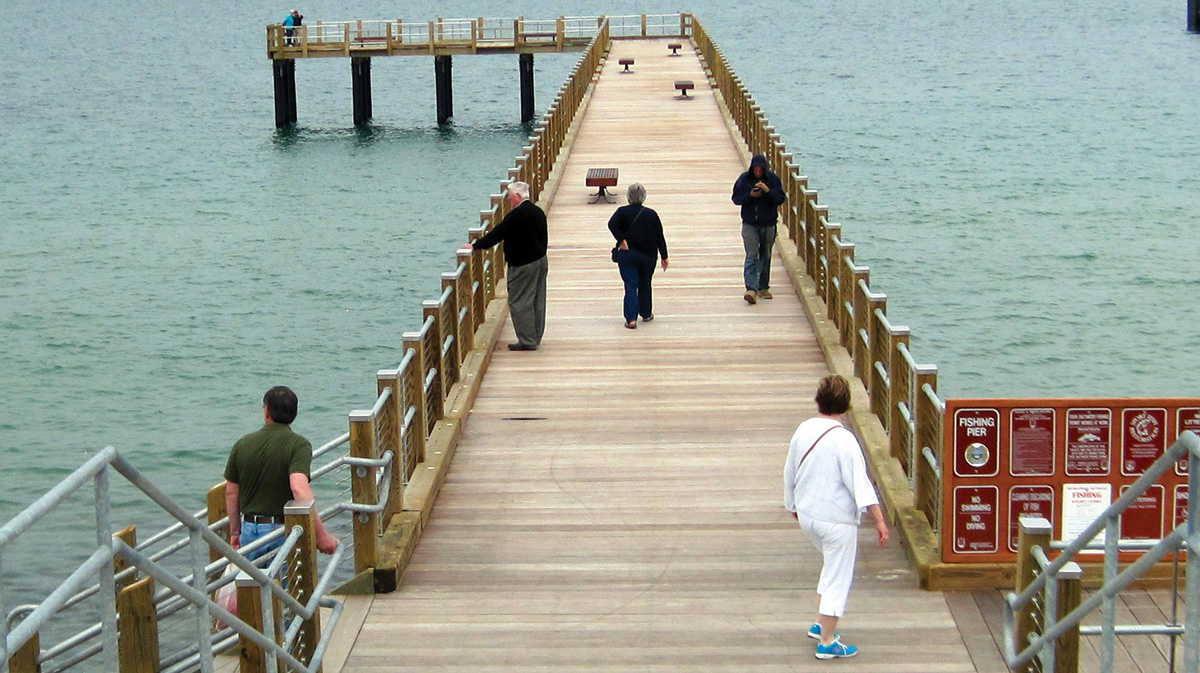
Other Uses of Licensing Money
The ability to monitor fish stocks has been greatly improved with funding from the permitting programs. As mandated by federal law, all of the New England states spend a portion of the money collected through their licensing programs on improving collection of important recreational fishing data. This data is essential in making more informed fishery management decisions.
With funding from their licensing programs, Rhode Island, Connecticut, and Massachusetts are now managing “the intercept survey of effort” for the Marine Recreational Information Program (MRIP.) Previously this program had been handled by National Marine Fisheries Service (NMFS) using independent contractors. Over the past few years, most of the cost of this program has been offset through reimbursement from NMFS. Each state also uses part of their licensing revenues to provide additional financial support for state biologists to conduct and manage various stock assessments.
The New England states use licensing funds to provide increased staffing to enhance state-funded marine fisheries initiatives. Funds provide supplemental financial support for habitat restoration projects, including the construction of artificial reefs. Public educational outreach programs have also received funding support including the publication and distribution of educational material. In Massachusetts and Rhode Island, funds help to supplement and provide small grants to municipalities for local infrastructure improvements.
Final Thoughts
With all of the accounts of government waste and fraud reported by the press, a lot of anglers still don’t trust the state to keep the saltwater license money separate from general funds. I do not want to start a political debate or an argument, but my time on the Massachusetts Marine Recreational Fisheries Development Panel taught me not to confuse fisheries management with traditional government and politicians. Money does not come easy to Marine Fisheries. They fight for every dollar they get and safeguard their funding very carefully. The bottom line is that Marine Fisheries truly try to do the right things.
Also don’t forget, if you live in one of the New England coastal states, they did you a favor by taking on the saltwater licensing responsibilities. If the states didn’t introduce a local license, anglers would be paying the much more expensive National Registry fee. The feds would also have kept this money, and states would never have seen any recreational fishing funds. Then opponents to licensing would really have something to complain about!
